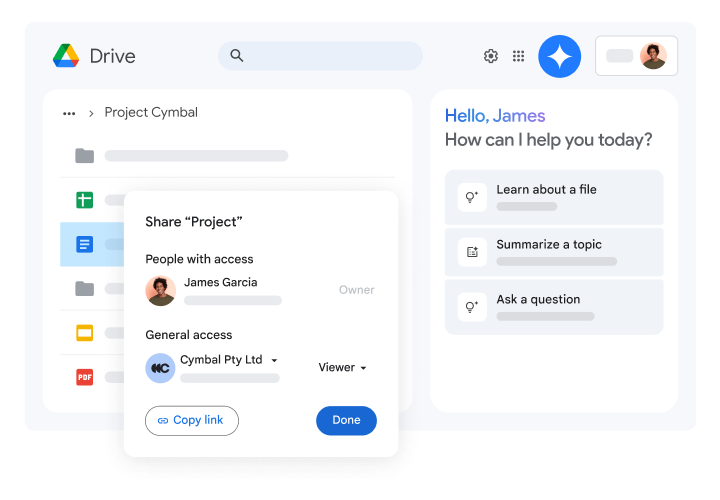
Best Remote Work Tools for Productivity and Security in 2025
In 2025, remote work isn’t just a trend—it’s the norm for over 30% of the global workforce, according to a Gallup survey. With hybrid models dominating, the right remote work tools can skyrocket productivity while safeguarding sensitive data against rising cyber threats (up 15% year-over-year, per Cybersecurity Ventures). This guide dives into the best remote work tools for productivity and security, including top picks for collaboration, storage, management, and more. Whether you’re a freelancer, small business owner, or enterprise team, these tools will help you stay organized, connected, and secure.
Why Remote Work Tools Matter in 2025: Trends and Challenges
Remote work tools have evolved rapidly, integrating AI for smarter workflows (e.g., auto-summarizing meetings) and zero-trust security to combat phishing. Key challenges include maintaining team cohesion across time zones and protecting data on unsecured networks. Stats show: 70% of remote workers report higher productivity with the right software (Forbes), but 40% face security breaches without proper tools (Verizon DBIR). Choosing the best tools for remote team productivity and security starts with assessing your needs—budget, team size, and integrations.
Top Collaboration Tools for Seamless Remote Teamwork
Effective communication is the backbone of remote success. Here are the best remote collaboration tools in 2025, with AI enhancements making them even more powerful.
Slack: The Go-To for Instant Team Messaging

Slack remains a leader among productivity tools for remote workers, boasting over 10 million daily users. Its channels and integrations streamline chats, reducing email overload by 32% (Slack stats).
Key Features:
- AI-powered search and summaries for quick recaps.
- Integrations with 2,500+ apps like Google Workspace and Zoom.
- Custom bots for automation.
Pros: Intuitive interface, free tier available.
Cons: Can get noisy without proper channel management.
Pricing: Free basic; Pro starts at $7.25/user/month.
Ideal for: Small teams seeking fast, fun collaboration.
Microsoft Teams: All-in-One for Enterprise Remote Work

For organizations in the Microsoft ecosystem, Teams excels in secure remote work software, with built-in Copilot AI for meeting insights.
Key Features:
- Video calls, file sharing, and live editing in one app.
- End-to-end encryption for chats.
- Integration with Office 365 for seamless workflows.
Pros: Robust security compliance (e.g., GDPR).
Cons: Steeper learning curve for non-Microsoft users.
Pricing: Included in Microsoft 365 (from $6/user/month).
Ideal for: Larger teams needing integrated productivity tools for remote workers.
Comparison Table: Slack vs. Microsoft Teams
| Feature | Slack | Microsoft Teams |
|---|---|---|
| AI Integration | Basic bots | Advanced Copilot |
| User Base | Creative teams | Enterprises |
| Security | Good | Excellent (compliance) |
| Cost | Affordable | Bundled with Office |
Essential Cloud Storage Solutions for Secure File Sharing
Secure cloud storage is non-negotiable for remote workers handling sensitive files. These tools offer encryption and real-time collaboration.
Google Drive: Collaborative and Accessible

Part of Google Workspace, Drive supports over 1 billion users with features tailored for remote work trends 2025.
Key Features:
- Real-time editing with version history.
- AI-driven file organization.
- Advanced sharing controls with expiration dates.
Pros: Free 15GB storage; integrates with Gmail.
Cons: Privacy concerns for enterprise data.
Pricing: Business plans from $6/user/month.
Dropbox: Reliable Sync for Remote Teams

Dropbox shines in file versioning, making it a top pick for essential remote work security tools.
Key Features:
- Password-protected links and two-factor auth.
- Smart Sync for offline access.
- Integrations with Slack and Adobe.
Pros: User-friendly; strong recovery options.
Cons: Higher cost for advanced features.
Pricing: Plus at $10/month; Business from $15/user.
Best Project Management Apps for Remote Organization
Stay on track with these project management apps for remote work, featuring timelines and AI predictions.
Trello: Visual Boards for Simple Workflows

Trello’s card system is perfect for how to choose remote work tools for better workflow.
Key Features:
- Drag-and-drop boards with labels.
- Power-Ups for integrations (e.g., Calendar).
- AI suggestions for task prioritization.
Pros: Free forever plan.
Cons: Limited for complex projects.
Pricing: Standard at $5/user/month.
Asana: Advanced Tracking for Teams

Asana’s timelines help top remote work tools for small businesses 2025.
Key Features:
- Goal tracking and workload views.
- AI-powered insights on bottlenecks.
- Custom fields for detailed tasks.
Pros: Scalable reporting.
Cons: Overwhelming for solo users.
Pricing: Premium at $10.99/user/month.
Time Management Apps to Boost Remote Productivity
Combat distractions with these time management apps for remote work.
Toggl: Precise Tracking for Freelancers

Key Features: Pomodoro timers, reports.
Pros: Integrates with 100+ tools.
Cons: Manual start/stop.
Pricing: Free; Starter $9/user/month.
RescueTime: Automated Insights

Key Features: FocusTime blocks, trend reports.
Pros: Passive tracking.
Cons: Less customizable.
Pricing: Premium $6.50/month.
Critical Security Tools for Remote Workers
Protect against threats with these essential remote work security tools for freelancers.
NordVPN: Encrypted Connections

Key Features: Double VPN, no-logs.
Pros: Fast speeds.
Cons: Occasional connectivity issues.
Pricing: From $3.99/month.
LastPass: Password Management

Key Features: Auto-fill, sharing vaults.
Pros: Family plans available.
Cons: Free version limited.
Pricing: Premium $3/month.
Leading Video Conferencing Tools for Virtual Meetings
Facilitate face-to-face with virtual meeting software.
Zoom: Versatile and Feature-Rich

Key Features: AI transcripts, breakout rooms.
Pros: High-quality video.
Cons: Security history (improved in 2025).
Pricing: Pro $14.99/host/month.
Google Meet: Simple Integration

Key Features: Noise cancellation, captions.
Pros: Free for Workspace users.
Cons: Fewer advanced features.
Pricing: Bundled with Google.
FAQs: Common Questions on Remote Work Tools
- What are the best remote work tools for productivity and security in 2025? Tools like Slack for collab, NordVPN for security, and Asana for management top the list.
- How do I secure my remote setup? Use VPNs, password managers, and enable 2FA everywhere.
- Are there free remote work tools? Yes, like Trello (basic) and Google Drive (15GB).
To get started, assess your needs and trial these tools. For more on remote work trends 2025, check our related guides. What tools do you use? Share in the comments!
Sources: Integrated from Gallup, Forbes, Verizon, and tool official sites for accuracy.

